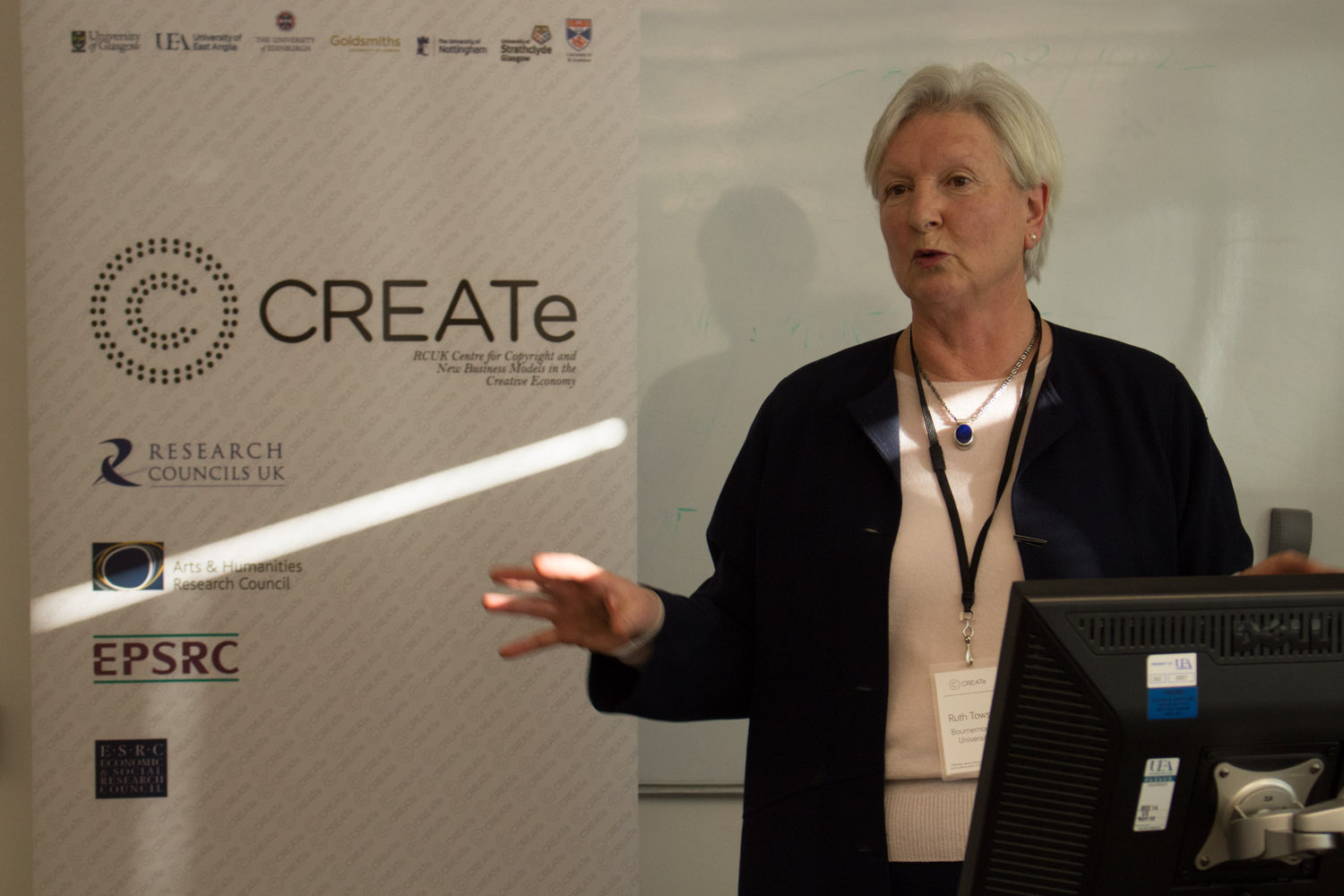 CREATe Fellow in Cultural Economics, Prof. Ruth Towse, has recently been made a Distinguished Fellow of the ACEI (Association for Cultural Economics International).
CREATe Fellow in Cultural Economics, Prof. Ruth Towse, has recently been made a Distinguished Fellow of the ACEI (Association for Cultural Economics International).
Widely regarded as the forerunner to establish the field of cultural economics, Prof. Towse has had an illustrious career for over 30 years in this area of study. Her authored and edited books have helped to define the field of the economics of art and culture as a serious area for specialist research and teaching in theoretical and applied economics. Through her role as a CREATe Fellow, Prof. Towse currently leads research on copyright and business models in music publishing. Incorporating both qualitative and quantitative methods of legal and economic analysis, her research provides an historical perspective on the economics of music publishing.
Prof. Ruth Towse took her first degree at the University of Reading in 1964 followed by an MSc (Econ) at the London School of Economics. Her PhD, in 2000, from Erasmus University in Rotterdam, was in ‘Creativity, Incentive and Reward: An Economic Analysis of Copyright and Culture in the Information Age’. This consolidated her interests in intellectual property and the digital economy, interests that still occupy much of her time today. Her early academic career included appointments at Middlesex University, City University in London, and the University of Exeter. With her husband Mark Blaug she moved to the Netherlands in 1999 to join the staff at Erasmus University, where she stayed for almost ten years. She returned to England in 2007, taking up her present position as Professor of Economics of Creative Industries in the Centre for Intellectual Property Management and Policy at Bournemouth University.
Prof. Towse started publishing in the early 1990s and together with Abdul Khakee edited one of the first collections of research papers in the field in 1992. In the following year she wrote a book on the economics of the singing profession (based on the detailed knowledge of singing gained through her early training as a singer). Her 1997 two-volume collection of papers published in cultural economics up until the mid-1990s still stands as a major source of the early literature in this field. In more recent times she has continued her publishing trajectory with books that have become standard reference works, including her Handbook of Cultural Economics (2003 and 2011), her Textbook of Cultural Economics (2010) and Advanced Introduction to Cultural Economics (2014).
